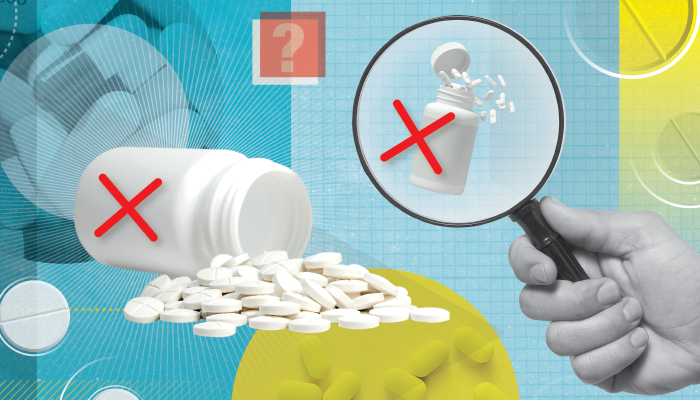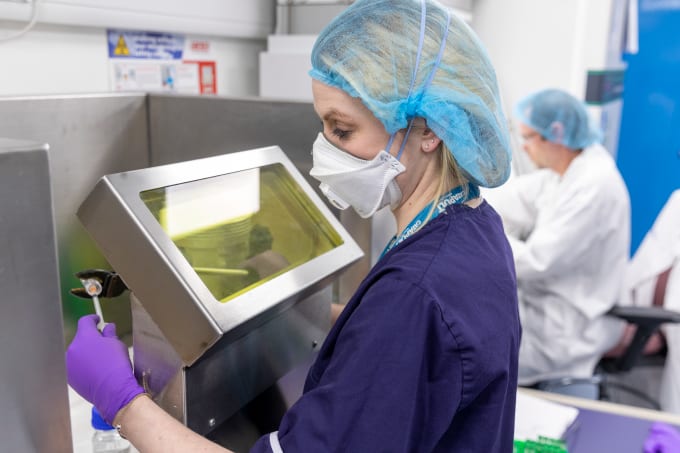A review article has provided an in-depth analysis of the global issue of counterfeit and falsified drugs, emphasizing the substantial risks they pose to public health, particularly in the context of international travel (1). The most prevalent types of falsified and counterfeit medicines are antibiotics, antimalarials, and lifestyle medications, with many being manufactured in India.
Weak regulatory frameworks, especially in developing countries, allow products to more easily infiltrate local markets. In some regions, such as Southeast Asia and Sub-Saharan Africa, limited healthcare infrastructure and the high cost of genuine medicines make it easier for counterfeit drugs to be sold and distributed. Even in high-income countries, however, where regulatory systems are more robust, counterfeit medicines can still pose a threat, especially through online sales channels. Travelers are at a unique risk of encountering falsified medicines because they may be unfamiliar with local pharmaceutical standards and resort to purchasing medications from unregulated sources.

Collage images: Shutterstock.com and Rawpixel.com
To address the challenges, the study calls for stronger international collaboration and improved regulatory frameworks. It suggests that adopting technological innovations, such as blockchain tracking and digital authentication of medicines, could enhance the transparency and security of pharmaceutical supply chains. Additionally, raising public awareness about the risks of counterfeit drugs, particularly among travelers, is crucial.
Healthcare professionals and pharmacists on the front lines of patient interaction have a key role to play in educating individuals on how to identify and avoid falsified products, but the pharma industry also needs to step up. Companies should consider creating awareness campaigns and providing training for pharmacists and healthcare providers. They can also share intelligence and data with regulatory bodies and international organizations, such as the WHO and INTERPOL, to strengthen global surveillance and enforcement. In addition, companies are encouraged to continue to implement serialization and other tracking technologies that enhance the transparency of the supply chain. Unique identifiers, digital watermarks, and other approaches can all help verify the authenticity of medicines.
Six Surprising Facts Cited in the Research
- “A survey of pharmacists working in healthcare settings in Nigeria found that 99.5 % associated counterfeit medicines with treatment failures, while 91.2 % believed that they contributed to antibiotic resistance.”
- “Although not major producers of medications, Southeast Asia, including countries such as Myanmar and Cambodia, has been identified as a major source of falsified and counterfeit drugs.”
- “A study between 2009 and 2015 of over 336,000 antimalarial drugs in 49,500 medical outlets in eight African nations found, on average, that only 24 % of artemisinin-based combination therapy (ACT) drugs were quality-assured while 25 % were non-quality-assured.”
- “The majority (54 %) of falsified and counterfeit drugs reported worldwide in 2006 were manufactured in India… A more recent study puts that number at 75 %.”
- “The most common locations of online pharmacies appear to be the U.S., Canada and the U.K.”
- “A recent study, conducted from 2018 to 2022, investigating the presence of counterfeit prescription drugs in Northern Mexico, particularly in pharmacies catering to English-speaking tourists, revealed that 70 % of pharmacies provided controlled substances without a prescription, and 27.5 % dispensed counterfeit medications.”
References
- AJ Feeney, JA Goad, GT Flaherty, "Global perspective of the risks of falsified and counterfeit medicines: A critical review of the literature," Travel Medicine and Infectious Disease, 61, 102758 (2024). https://doi.org/10.1016/j.tmaid.2024.102758




